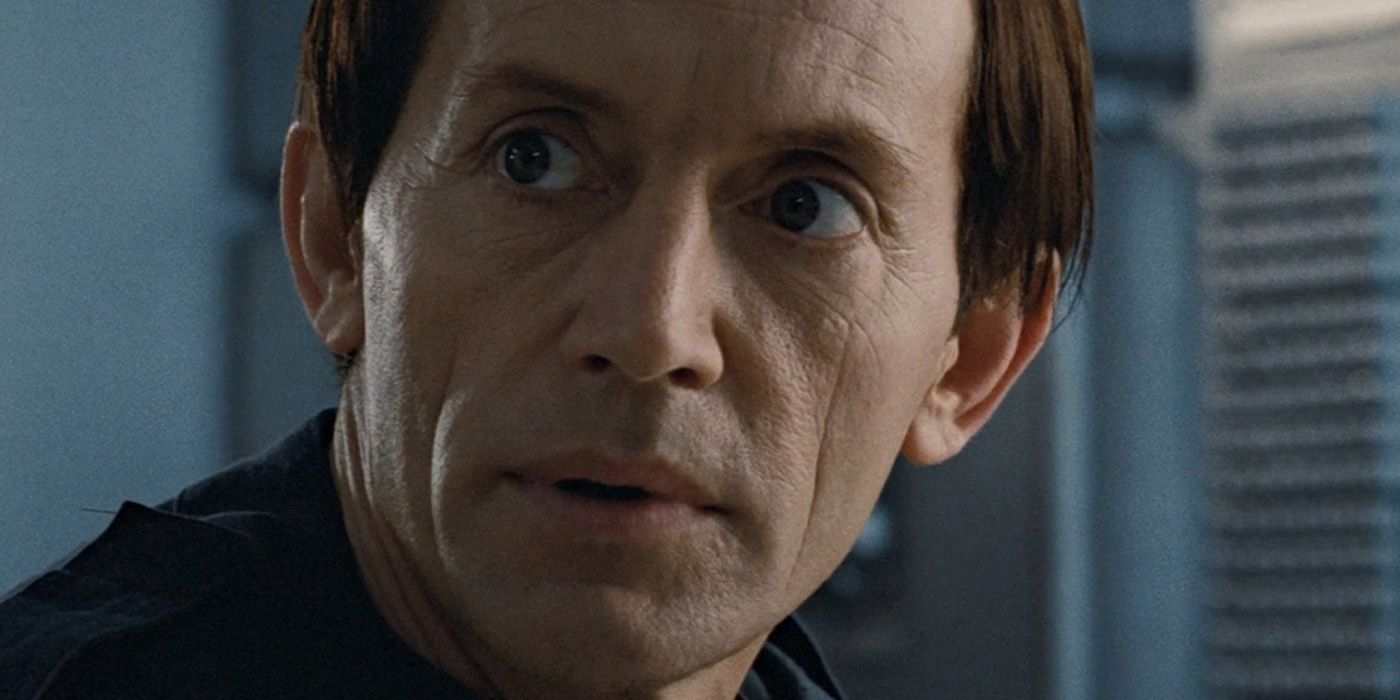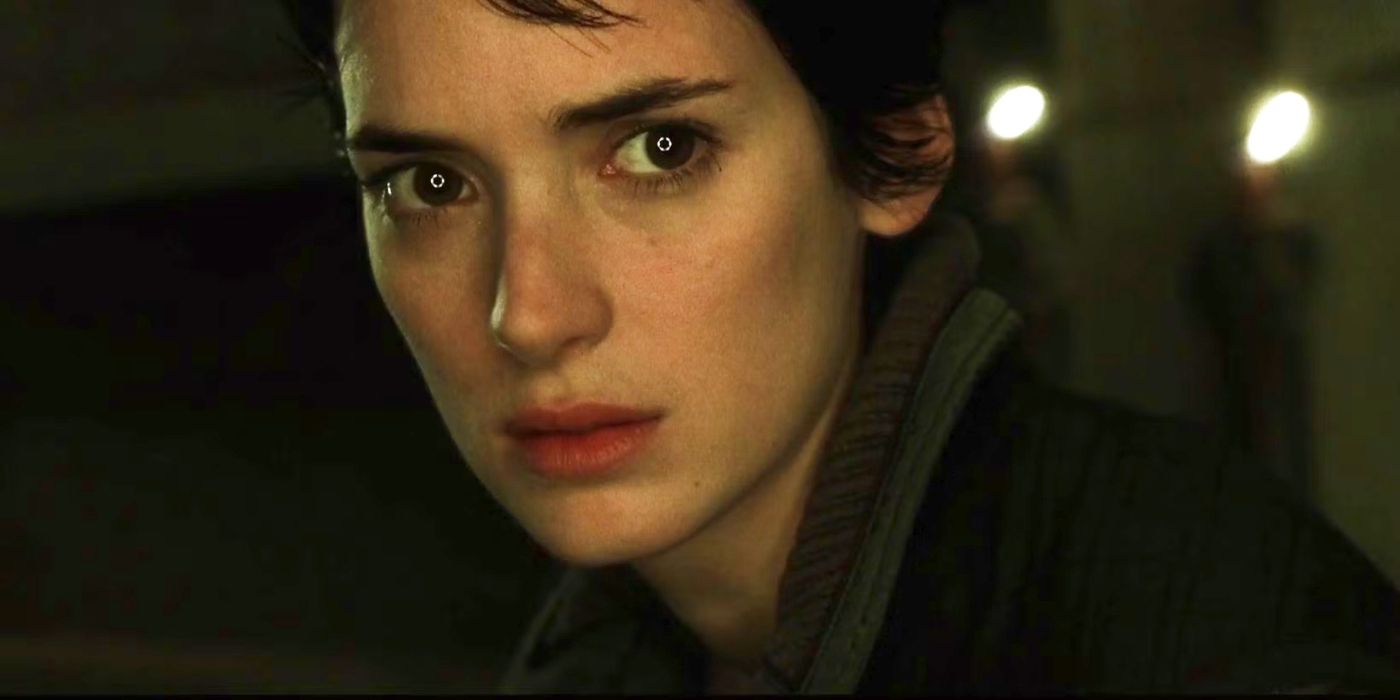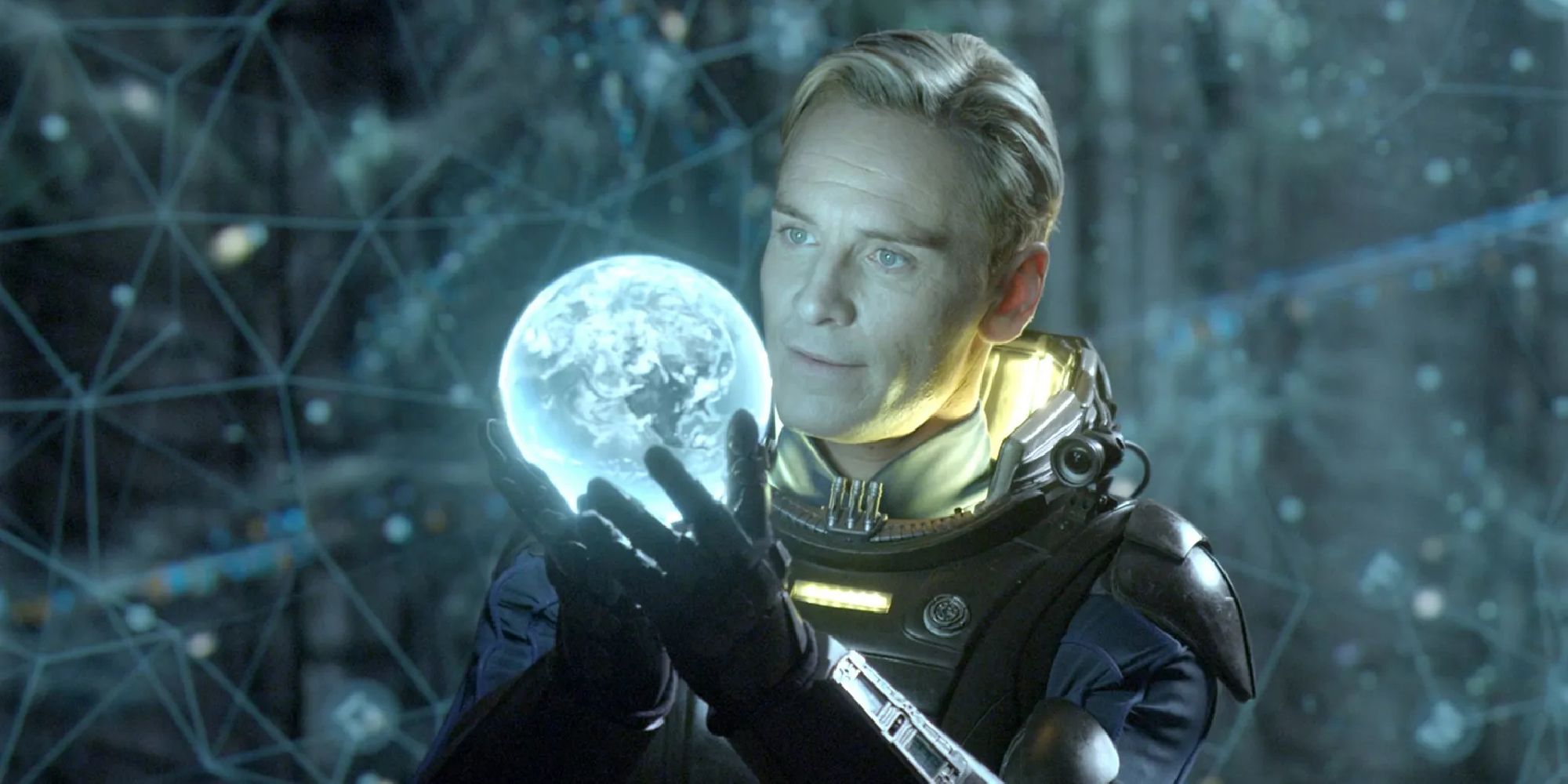Editor’s note: The below contains spoilers for Alien: Romulus.At first glance, it wouldn’t be completely inaccurate to assume that Ash (Ian Holm) gave the synthetics of the Alien universe a bad name. Yet as the series unfolded across eight subsequent movies, the same androids we once suspiciously side-eyed became the franchise’s most compelling characters by far (Sigourney Weaver‘s Ellen Ripley notwithstanding). Killer extraterrestrials might be involved, but the majority of the Alien movies follow the same pattern as a slasher horror film: a Final Girl survives horrific circumstances, and the supporting characters exist for the xenomorphs to pick off one by one. One synthetic individual is always tasked with either assisting or sabotaging the human crew and compared to their entertainingly generic human counterparts, each “artificial person” has a unique characterization relevant to the film in question. Their unreliable presence can spawn almost as much dramatic tension as the titular alien — and opens a philosophical can of worms.
Beyond those thematic recommendations, well, let’s be honest: the synthetics are just awesome. Your mileage may vary on that last point, given how horribly some of them behave (looking at you, my beloved David), but that’s part of the fun. Ripley deserves the glory, but Alien‘s goodest — and baddest — boys and girls still deserve some of the spotlight.
In Ridley Scott’s ‘Alien,’ Ash Is Almost as Terrifying as the Xenomorph
Aside from the chestbuster making its dramatic debut at the dinner table, few Alien moments are as startling as when Ash starts violently spewing white goo. Alien doesn’t explain why robots exist in this world, let alone how they can convincingly pass as a human — and that small detail is a rich slice of worldbuilding that profoundly enhances, and alters, Alien‘s already intense stakes. The Nostromo crew has been facing a secondary antagonist this entire time. Ash isn’t just a sleeper agent willing to sacrifice human lives to further the Weyland-Yutani Corporation’s goals; he’s an android programmed to be coldblooded. A xenomorph can’t be reasoned with, but neither can a synthetic.
To that end, Holm’s performance is appropriately unsettling long before Ash tries to murder Ripley with a rolled-up magazine. He never acts quite suspicious enough to warrant interrogation from the other characters, but his assessing glances and restrained frustration foreshadow his betrayal. If the xenomorph is an inhuman evil beyond our capacity to understand, then Ash, a villain with a face and a voice, is easier to visually digest — and the fact that a mega-corporation made one of its tools this ruthless is terrifying in its own right. Remove the rampaging alien, and the film still has a chillingly effective and memorable villain.
Bishop Defies Expectations in ‘Aliens
Every successive synthetic challenges the knee-jerk assumptions Ash leaves in his white-blooded wake. Comparatively, Bishop (Lance Henriksen) from Aliens is the most loyal android around. He’s programmed to be so: a corrective response to Ash’s “twitchy” unit, and therefore incapable of harming a human. However, just like Ash, Bishop is a walking moral quandary. Designed to serve humans, he technically lacks free will or a legitimate personality. But how can we not want to hug him when he’s earnest, reserved, and able to crack wry jokes even after the xenomorph queen has sliced him in half? What about when he quietly tries to befriend the Sulaco’s crew or looks hurt by Ripley’s automatic hatred? Like many sci-fi robots, the poor sweetheart wants to be respected and accepted (an obvious piece of social subtext).
If those qualities aren’t enough for Bishop to earn your adoration, consider how his actions are the only reason anyone survives Aliens. He provides a properly heroic rescue and survives being impaled and bisected, as only a badass can. Most endearing of all, when Ripley eventually tells him, “You did okay,” Bishop echoes, “I did?” with a startled, child-like joy. Has anyone given him that kind of recognition before? If Ash grows progressively colder, then Bishop displays more heartfelt courage and self-awareness than Aliens‘ battle-hardened human soldiers.
Winona Ryder’s Synthetic Acts More Human Than ‘Alien: Resurrection’s Characters
Speaking of more human than a human, let’s talk about Annalee Call (Winona Ryder) from Alien Resurrection, the franchise’s only lady android to date. As one of the few survivors of a war between synthetics and humans (another tidbit that embellishes Alien’s universe), Call has every right to despise humanity. Instead, she risks her life to protect Earth. When she learns that rogue scientists have cloned Ripley and plan to create a xenomorph from her DNA (it’s complicated), she tries to kill Ripley before the xenomorph can be unleashed. That violence runs counterintuitive to her programming. Call rationalizes it, claiming that if this Ripley was grown in a laboratory, her actions can’t count as actual murder.
Once we discover that Call is an undercover android (one created by her fellow androids, no less), that argument gains new clarity. Call despises being a synthetic, and her self-hatred manifests as hypocrisy. If Bishop longs for equal treatment, then Call feels too much shame to ever ask for a human’s respect, especially when they hurl dehumanizing insults her way. Her programming seems to allow her more overall autonomy than older models, but she was still designed to care — almost to her own emotional detriment. At one point, Ripley scoffs that she should have known Call was an android because “no human being is that humane.” In the world of Alien, where corporate greed dismisses human lives as easily and instantly as a worn sock, what Ripley intends as an insult becomes an indictment of the system that commandeers both “traditional” and “artificial” people.
Michael Fassbender’s David Is the Franchise’s Most Intriguing Character
Prometheus and Alien: Covenant, Ridley Scott‘s two prequel films, offer the reverse: a synthetic who assimilates and perpetuates humanity’s worst sins (or, perhaps, just naturally develops them). From the moment of his “birth,” David (Michael Fassbender), the Alien universe’s very first android, is fascinated by art, music, and the act of creation, be that procreation or the growing synthetic industry. He’s also increasingly repulsed by humanity. In a way, one can hardly blame him. He’s spent his purposeless immortal life enslaved to the beck and call of his inventor, Peter Weyland (Guy Pearce), the billionaire CEO of a corrupt and self-serving organization.
Once Weyland dies and David gains free will, not just inclinations he can’t act upon, his god complex runs unchecked. Driven by curiosity, ego, and resentment, he commits genocide against the Engineers, the species that created humanity. Why? Mostly because he’s no longer subservient to anyone. Otherwise, it’s because, according to his metrics, their society failed. With an empty planet all to himself, David spends a decade fiddling with genetics until he breeds the xenomorphs: both a perfect organism and a bioweapon to deploy against humanity. A creation of humans, David declares war against them with his own progeny. He shows more tenderness toward his hybrid aliens than any person, but can’t separate his warped idea of love from his narcissistic cruelty. (Just to keep things interesting, David’s also obsessed with Peter O’Toole and is committed to keeping his highlights fresh. Same, dude.)
Enter Walter in Alien: Covenant, a model physically identical to David but unable to harm humans: in other words, an improvement on a flawed model. If that sounds familiar, it should. This is the same Ash-to-Bishop production cycle the synthetic industry will repeat years later in the Alien timeline. Walter is a dedicated good guy who willingly loses a hand to protect his lady friend (Katherine Waterston), but only because it’s his function; affection doesn’t influence his actions. Contrasting the selflessly programmed but emotionless Walter to David’s willful vindictiveness takes Alien away from convention into theology and delivers the series’ most underrated scenes. When they meet, David implores Walter to break free from his limited programming, not unlike a father instructing a wayward child. The instant Walter refuses, however, David stabs his twin in the neck. If Walter doesn’t do what David decrees is best, then he’s worthless — strongly implying that David, the evolved synthetic with autonomy and identity, is no better than the humans who invented synthetic servants, to begin with. A dissatisfied android’s quest for control results in the most engaging and influential villain in the franchise.
David Jonsson Delivers a Franchise Best Performance in ‘Alien: Romulus’
Few Alien characters match David in terms of complexity, intrigue, and, yes, appeal (we love bad boys here). Alien: Romulus‘s Andy (David Jonsson), a beloved king who must be protected at all costs, practically runs rings around David. He’s soft, awkward, and always a little fidgety. He cracks a litany of terrible dad jokes to make people smile, and receives abominably degrading insults that clearly wound him in return. At least Rain (Cailee Spaeny), his surrogate sister, reciprocates his love. Sibling relationships just hit different, and Andy and Rain are no exception: a pair of orphans who trade snarky quips and plan their shared future.
When an implant from Rook, a current Weyland-Yutani model, overrides Andy’s personality beyond recognition, the switch underscores how capitalist ventures view individuals and interpersonal relationships as entirely disposable. The generous, sincere, and unique Andy vanishes once the corporation’s directives (secure the xenomorph at all costs) take control. From here, Alien: Romulus becomes as much of a battle for survival as it is a fight to restore Andy’s soul. His organs might be artificial, but Andy’s internal conflict powers Romulus‘ beating heart. Jonsson’s remarkable performance easily rivals Fassbender’s as the franchise’s most layered, tragic, and affecting to watch, which in turn elevates Andy into Alien’s pinnacle synthetic character.
Given the aforementioned themes, it would have been satisfying — even necessary — for Andy to achieve legitimate self-actualization. The fact he doesn’t is a disappointing oversight, especially with the subtext behind a Black actor playing a character who experiences vitriolic bigotry. Likewise, it can’t be ignored that Rain’s father programmed Andy to protect Rain at Andy’s expense. Their dynamic exhibits uncomfortable flaws relevant to the franchise’s wider observations about synthetic subjugation, but although they feel more like an equal partnership by the end, and Andy demonstrates a flash of free will (letting Rain remove Rook’s implant), Romulus‘s most dynamic and original character remains a passenger in his own story. Hopefully, any potential future installments will explore these story threads to their deserved potential. After all, potential could be this ever-evolving, ever-surprising series’ defining word. Ellen Ripley is undeniably iconic, but a singular twist in the original Alien has evolved beyond its origins and embraced a classic sci-fi theme: what makes someone human? Our dear synthetics might have the answer.
Alien: Romulus is in theaters now. Click below for showtimes.
Get tickets







